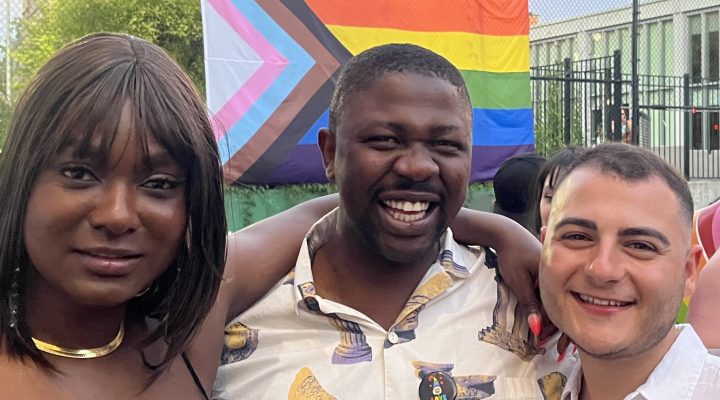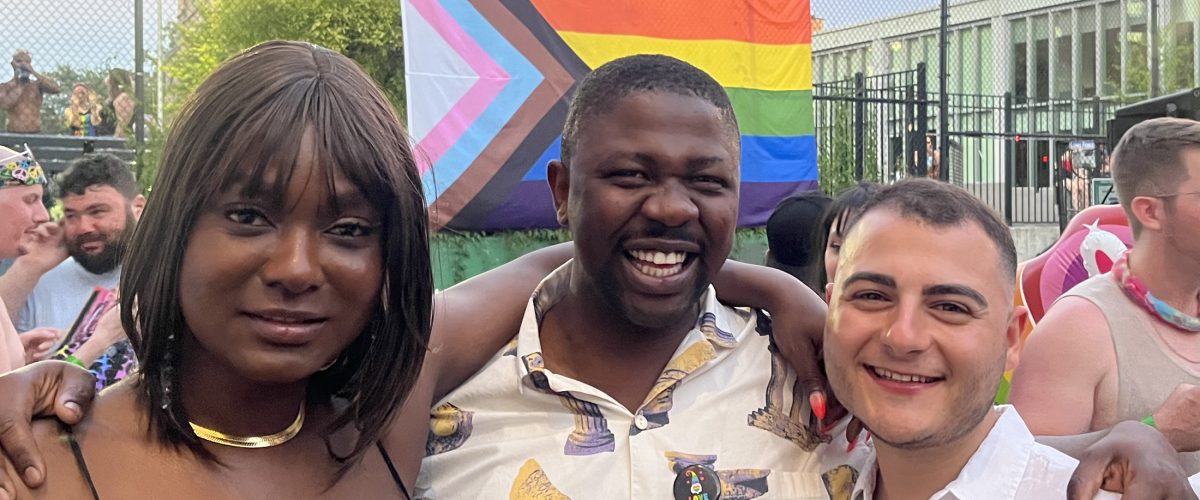On the day of its independence, America chose a motto to show how proud it was of its diversity and welcome. Over the centuries “E Pluribus Unum” — “out of many, one” — has meant welcoming tens of millions of the “huddled masses yearning to breathe free.” As Pride month and World Refugee Day coincide, we shine a spotlight on a few of those free-breathing folks who have made it to these United States from a world that has oppressed them because of their identity.
America’s own identity as a melting pot is enriched by stories like those of Tiffany, Sal, Youssef, Noni, Pasha and Nature Brian — individuals from varied backgrounds who found refuge and a voice in the U.S.
Refuge America was formed with the mission of telling the stories of these new American LGBTQ individuals to help their new compatriots understand the type of gifted, hardy people they have welcomed to the country.
Each of their stories that Refuge America has told in its first year, from the glamorous streets of New York to the academic corridors of Boston, from the cultural mosaic of San Francisco to the bustling life of Lebanon, highlights a unique journey marked by resilience, an ongoing struggle with identity and the pursuit of acceptance.

Sal
For a few examples: Tiffany’s advocacy in New York is transforming the challenges that face her new city into platforms for change. Sal’s journey from Karachi to Boston underscores the perseverance needed to overcome systemic hurdles while fostering community strength in a new homeland. Youssef’s move from Lebanon to the U.S. illustrates the personal evolution that immigration can spark, navigating the complexities of self-discovery and integration.
Noni’s love letter to New York highlights the city’s role as a beacon for dreamers and artists, reflecting how urban landscapes can influence personal and artistic growth. Pasha’s tumultuous path from Kyrgyzstan to San Francisco exposes the harsh realities of intolerance and the quest for a safe haven where one can truly be oneself. Even Nature Brian, whose question about identity — “Do I have to choose?” — was embraced by their mother’s answer, “No, it’s your Nature Brian,” had to flee their home in fear for their safety.
Together, these narratives form a mosaic of modern America. Whether just arrived or here for a millennium, behind each face is a story of courage and the universal desire for acceptance. Even as countries pass repressive, bigoted laws against their own citizens, and even as American politicians try to whip up anti-immigrant hysteria, we welcome these good-hearted individuals fresh from their struggles and ready to build a better life in the shadow of liberty.
To show the lie of the frightening and faceless folk that unscrupulous populists paint them, Refuge America and these individuals are sharing their faces, their hearts and their stories. Their experiences remind us of the ongoing struggles for — and within — the immigrant community and the need for policies that recognize and address the diverse challenges they face.
As America continues to evolve, it must remain a sanctuary that not only welcomes but also celebrates the varied histories and contributions of its immigrant populations. The strength of a nation lies in its ability to embrace its diverse citizens, offering them the refuge and opportunities they seek.
In a world where displacement is increasingly common, stories like those of Tiffany, Sal, Youssef, Noni, Nature Brian and Pasha are not just narratives of personal achievement but calls to action for all of us to continue building a more inclusive and compassionate society.
Dan Friedman was the only Yale Ph.D. on the writing staff of Sacha Baron Cohen and the only qualified soccer coach to have been executive editor at the Jewish Daily Forward. Author of a book about the ’80s band Tears for Fears, his work has appeared in The New York Times, the Financial Times, the Daily Beast and the Wall Street Journal among other outlets. A leader in the fight against hate on social media, Dan is a writing coach and digital consultant, working with individuals and a variety of nonprofit organizations to help them improve their communications.


